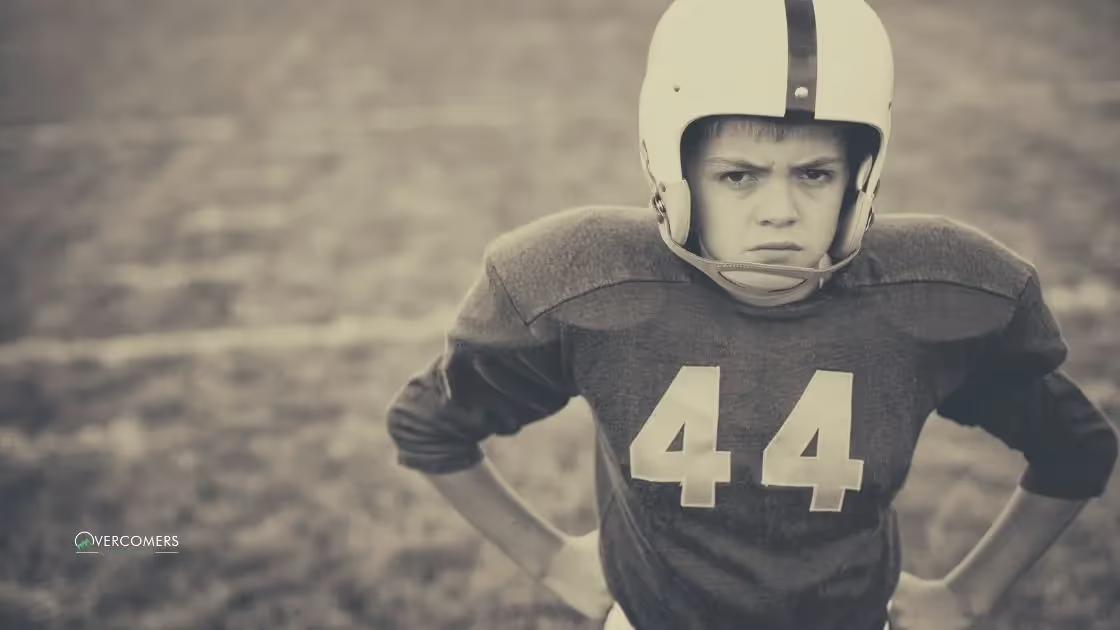Children who are sore losers often struggle in social situations.They may have difficulty making friends and keeping them. They may also find it hard to...

Children who are sore losers often struggle in social situations.
They may have difficulty making friends and keeping them.
They may also find it hard to cope with competition, whether it's in sports or academics.
While it's important for children to understand how to deal with disappointment, it's also important that they learn how to lose gracefully.
Developing this skill will help them be more confident when competing, and it can also help them build stronger relationships with their peers.
There can be many reasons why your child reacts badly to losing.
Maybe they're used to being the best and are struggling to deal with not being number one.
Or, they may simply not know how to handle their emotions when they're feeling disappointed or upset. Some other reasons may include:
To help your child learn how to lose graciously, it's important to understand what is causing them to have these negative reactions.

Explain to them that losing doesn't make them a failure or mean that they're bad at something, and give them the tools they need to handle their emotions more constructively.
As your child moves through different stages of development, it's important to help them learn how to deal with losing and develop coping strategies that will help them feel more confident and in control.
Strategies may include practicing positive self-talk or engaging in relaxation techniques like deep breathing or visualization.
Some other ways you can help are:
This will help them focus on the process and not just the outcome.
Overall, if you want to help your child deal with losing and overcome their negative reactions, it's important to focus on helping them develop confidence, set goals, and recognize their strengths.
This will not only improve their social skills but also help them become stronger competitors in the long run.
You can also explain to them to accept their competitor's wins. Some things you can say to your child are:
By following these tips, you can help your child develop the skills they need to deal with losing more positively and constructively.
Consider this idea when learning how to deal with a sore loser child.
Remind them that losing is a natural part of the competition.
Some of the things you could say are:
By helping your child learn how to lose graciously, you can help them become a stronger competitor and build positive relationships with their peers.
This is a positive step when learning how to deal with a sore loser child.

Praise them when they lose with grace and thank them for putting in the effort.
Some things you could say are:
By rewarding your child for good sportsmanship, you can help them develop a positive attitude towards competition and teach them the importance of supporting others.
This is an important step when learning how to deal with a sore loser child.
Encourage your child to reach out and make friends with other kids who share their love for competition.
Some things you could say are:
Helping your child build positive relationships with their peers can help them develop social skills and learn how to support others.
If your child is struggling to deal with their losses in a positive way, it may be best to seek professional help.
A therapist can help your child develop healthy coping mechanisms and work through any underlying issues that may be causing them distress.
The information presented in this post is meant for informational purposes only.
Do not substitute the content in this blog post for advice from licensed health professionals.
It's important to remember that every child is different and will require individualized approaches when it comes to dealing with their sore loser behavior.
If you're struggling to help your child, consider seeking professional assistance.
With the right support, your child can learn how to deal with losing, and they can become a better competitor in the process.
You can teach your child persistence by modeling the behavior yourself, encouraging them to take risks, setting goals and tracking progress, praising effort, and providing support and guidance.